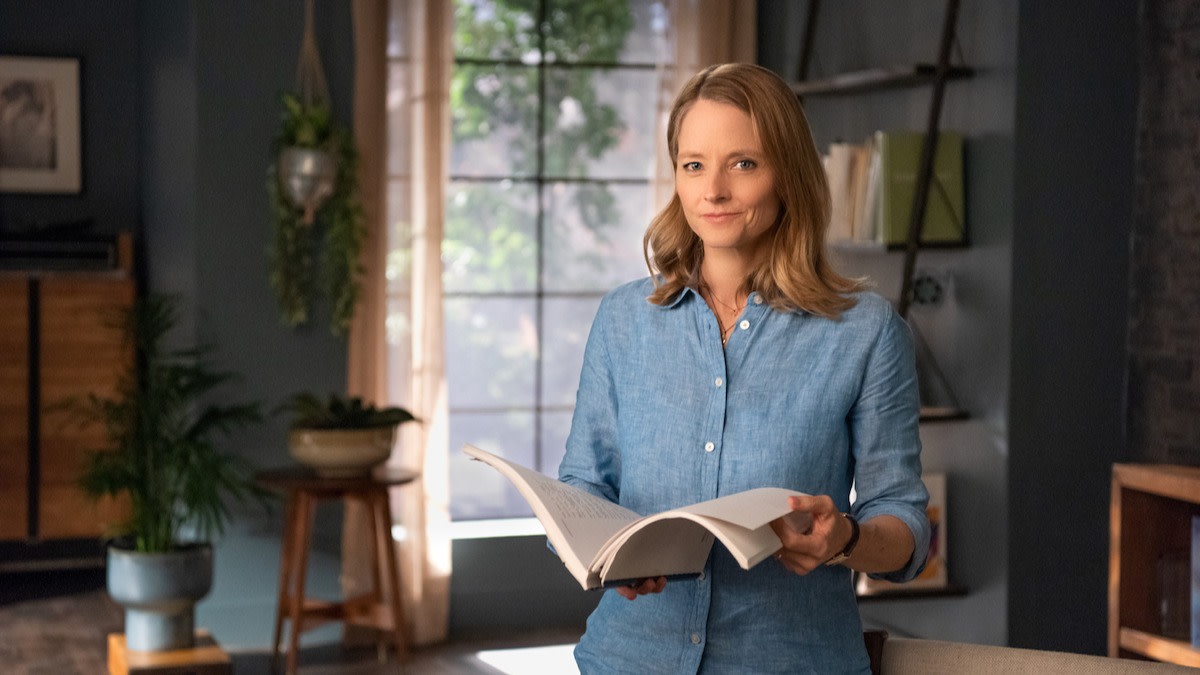Jodie Foster Breaks Down the Acting Process: 8 Tips for Actors
Written by MasterClass
Last updated: Jun 7, 2021 • 4 min read
Jodie Foster is an Academy Award-winning performer, and one of the most critically acclaimed actors of her generation. Following a lengthy acting career in Hollywood with a number of notable roles, along with a series of directing credits, Jodie Foster knows how to put in the hard work to be a better actor, and how to bring out an actor’s best performance.
Learn From the Best
A Brief Introduction to Jodie Foster
A prolific award-winning actress and director, Jodie Foster made her acting debut at age three, appearing as The Coppertone Girl in the sunscreen brand’s television commercials. After making her mark in television, Jodie took on a notable role in Martin Scorsese’s Alice Doesn’t Live Here Anymore (1975), who she would go on to work with again in 1976’s Taxi Driver. She won widespread critical praise and her first Oscar nomination for her breakthrough performance as a streetwise teenager in the award-winning psychological thriller.
Jodie Foster’s performances as a rape survivor in The Accused (1988) and as Special Agent Clarice Starling (1991) in the hit thriller The Silence of the Lambs earned her two Academy Awards for Best Actress and a reputation as one of the most critically acclaimed actresses of her generation. Jodie has appeared in more than 40 films and received many prestigious awards and honors. In 2013, she was presented with the Cecil B. DeMille Award from the Hollywood Foreign Press Association for Lifetime Achievement.
Jodie Foster’s 8 Tips for Actors
Jodie is unique as a filmmaker because she brings the combination of an actor/director perspective. Whether you’re an aspiring actor just starting beginner acting classes or trying to land a lead role in the auditioning process, the following acting tips can help you on your journey to becoming a professional actor:
- 1. Break down the process. There are three layers to the acting process: what the character is communicating/showing, what the character is hiding, and the part of the character that’s unconscious, that they don’t know is a part of their story. Actors can work with these layers one at a time or all three things at once. Study other actors and see how they convey each of these layers.
- 2. Find your personal story. Figuring out what inspires you, what interests you, and what you’re passionate about are key to figuring who you are. Think about a moment from your life that really stands out for you, and that includes at least one other person—perhaps something that stirs up some strong emotion. Once you find the things that move and inspire you, you can use that feeling to move and inspire others.
- 3. Experience the process. Acting is not just about using a special acting technique to achieve a particular result. The acting experience should be an organic, natural process, not one where you force yourself to show a specific feeling. Don’t block yourself in by the need to achieve an emotional result, instead focus on feeling the emotion itself.
- 4. Use body language. Hone your skills delivering dialogue, but be sure to incorporate gestures, facial expressions, and vocal choices to convey a character. Most great actors research their roles, so do some searching of your own to see what kind of quirks or mannerisms you can bring to a specific kind of character.
- 5. Read. An Actor Prepares by Constantin Stanislavski (1936) is a standard known by most trained actors. Stanislavski presents his knowledge about the craft of acting using a semi-fiction form, appearing under the name Tortsov. Using this character, Stanislavski doesn’t claim an invention of any technique, but instead offers an overview of the craft and the discipline it takes to master.
- 6. Take risks. Some directors allow a little freedom on set for actors to take risks or try things as their character. If you have that ability, don’t be afraid to explore your character’s emotions. During the audition process, make bold and smart choices that work for and serve the story properly.
- 7. Understand the role. Before a casting director casts an actor, it’s important that you both speak the same language, and that you, as an actor, understand the story being told. Bring life to the character with your acting skills, and keep yourself open, willing, and flexible with those you are collaborating with. This is something that can help you both in the audition room and on set.
- 8. Show, don’t tell. Characters talking about how they feel in a scene is generally not something that works. There’s nothing worse on screen than people saying, ‘This is how I feel.’ You want to see, and you want to show—not hear somebody talk about it. Good actors know how to show without telling.
Want to Learn More About Acting?
Become a better actor with the MasterClass Annual Membership. Gain access to exclusive video lessons taught by award-winning actors including Jodie Foster, Natalie Portman, Helen Mirren, Samuel L. Jackson, and more.
